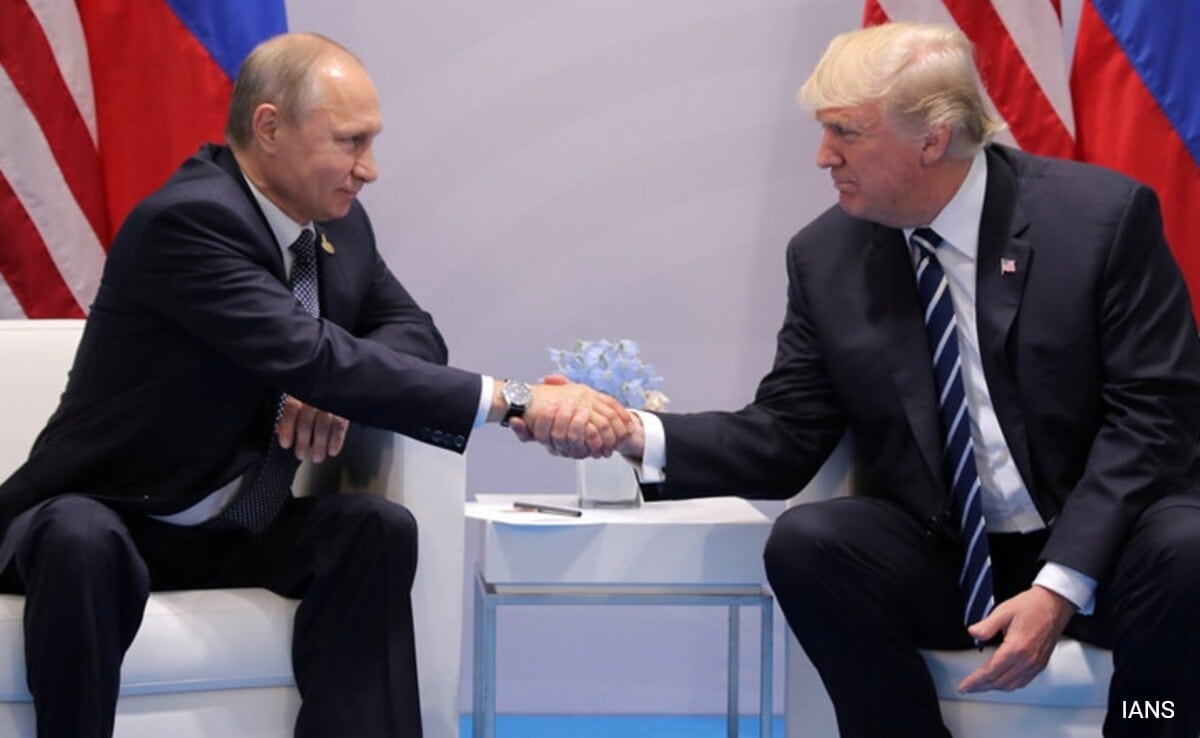Ukraine and the United States are nearing a deal for Washington to receive a portion of Kyiv’s natural resource revenues, with President Trump stating that Ukrainian President Zelensky may visit the White House soon to finalize it. The proposal, part of Zelensky’s “victory plan,” aims to provide a financial incentive for US support, though Ukraine has resisted drafts lacking security guarantees essential for its defense against Russia. Concurrently, Russia is tempting American companies with similar deals, emphasizing their rare earth metals and mining opportunities in occupied Ukrainian territories. The US seeks this agreement to decrease dependency on China for critical minerals.
Washington, US:
Ukraine and the United States are nearing an agreement that would allow Washington to receive a portion of Kyiv’s revenues from natural resources. US President Donald Trump indicated that his Ukrainian counterpart, Volodymyr Zelensky, may visit the White House “this week or next week” to formalize the proposal, which has become the focal point of escalating tensions between the two leaders.
“The agreement is currently being finalized. They’re very close to a conclusive deal,” Mr. Trump stated on Monday during a briefing at the White House.
Simultaneously, as US and Ukrainian officials were wrapping up the deal, Russia extended a parallel offer to the United States, underscoring the potential financial benefits of strengthening ties with Moscow.
Inside the Agreement
The proposal concerning mineral resources was initially put forward by Ukraine as part of the ‘victory plan’ that Mr. Zelensky presented to Mr. Trump last September ahead of the presidential election. The intention was to provide business incentives for then-presidential candidate Trump to ensure continued US security guarantees.
However, the draft agreement presented by the Americans last week reportedly demanded 50 percent of the revenues from Ukraine’s natural resources without reciprocal security commitments. The Trump administration has characterized this demand as a form of compensation for previous American military and financial assistance.
Without the promised security guarantees, Mr. Zelensky was unwilling to sign the proposed agreement, arguing that it would place a significant financial burden on future generations.
Following that, American and Ukrainian diplomats have engaged in discussions aimed at finding a viable compromise.
On Monday, Ukraine’s Deputy Prime Minister Olha Stefanishyna announced on X that “Ukrainian and US teams are in the final stages of negotiations concerning the minerals agreement.”
“The talks have been very constructive, with nearly all critical details settled. We are eager to expedite this process to move forward with its signing. We hope both US and Ukrainian leaders might sign it in Washington soon to demonstrate our commitment for the long term,” she added.
The current iteration of the agreement under discussion between Washington and Kyiv reportedly offers more favorable conditions for Ukraine compared to prior drafts. Nevertheless, it still lacks the security guarantees that Ukraine has been seeking as it battles against Russia’s invasion, according to a report by The New York Times.
As per the report, the terms of the deal remain provisional and might still change.
However, the White House clarified on Monday that the economic agreement with Ukraine “will not guarantee future aid for wartime efforts, nor will it entail any commitment of US personnel in the region.”
Mr. Zelensky has maintained that Ukraine requires Western arms and support in any peace agreement to avert potential future Russian attacks, while Mr. Trump insists that the conflict must end swiftly, without providing such security assurances.
Russia Offers a Similar Deal
In an interview with Russian state television on Monday, President Vladimir Putin suggested that American companies could engage in lucrative business ventures in Russia. In a message seemingly directed at US President Trump regarding the advantages of enhancing relations with Moscow, Mr. Putin mentioned that Americans could even assist in extracting rare earth materials in Russian-occupied Ukraine.
According to him, Russia possesses an “order of magnitude” greater quantity of rare earth metals than Ukraine and is “prepared to collaborate with our foreign partners, including the Americans,” on developing those resources, as reported by the NYT.
He added that the invitation also pertains to Russian-occupied Ukraine and highlighted that American companies could “profit significantly” by aiding in the development of aluminum production in Siberia.
“There are various avenues to consider here,” Mr. Putin remarked, referring to aluminum, “as well as opportunities for collaborative efforts in rare earth metals and other sectors, such as energy.”
Resource Assessments in Russia and Ukraine
Kyiv estimates that approximately 5 percent of the globe’s “critical raw materials” are located in Ukraine. This includes around 19 million tonnes of confirmed graphite reserves, positioning the country as “one of the top five leading nations” in graphite supply, according to the Ukrainian Geological Survey state agency.
Ukraine is said to hold about a third of all European lithium deposits. Prior to the onset of the war, it accounted for 7 percent of global titanium production. Additionally, Ukraine boasts significant reserves of rare earth metals—a group of 17 elements essential for manufacturing weapons, wind turbines, electronics, and other critical products in modern society.
However, some of these mineral reserves have been seized by Russia since the invasion. Yulia Svyrydenko, Ukraine’s economy minister, reported that resources valued at $350 billion remain within occupied territories.
Russia also ranks among the leading countries globally in terms of rare earth metal reserves; however, it has yet to fully exploit these resources.
Interest from the United States
The US appears to be pursuing this mineral deal with Ukraine as part of its strategy to lessen dependence on China, which controls 75 percent of the world’s rare earth deposits, according to the Geological Investment Group.
In December, China imposed a ban on the export of select rare earth minerals to the US and had already restricted mineral exports to the US the preceding year.
